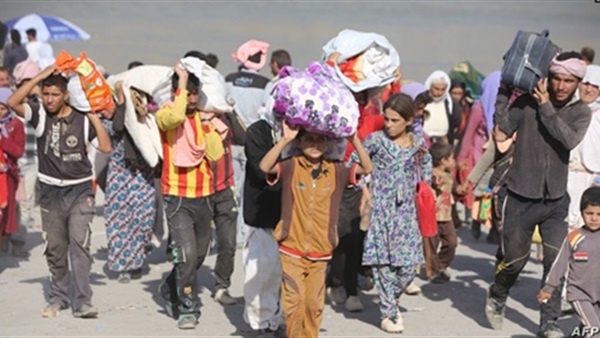Political Rifts and Minority Representation: Challenges Facing Kurdistan's Elections

Minority groups in the Kurdistan region of Iraq are calling
for an increase in their representation in the upcoming parliamentary
elections, which have been postponed since last October.
Representatives of religious and ethnic minorities in the
region are hoping to secure their place in the next parliament by advocating
for changes to the election law.
Their demands revolve around increasing the percentage of
seats allocated to minority groups, in addition to granting their members the
right to veto in the next parliament.
These moves come after previous statements made by the
Minister of Components Affairs in the Kurdistan Regional Government, Aydan
Maruf, who promised to secure the rights of minority groups in the draft of the
region's constitution.
The 120th article of the Iraqi constitution grants the
Kurdistan region the right to draft its own constitution, which determines its
power structure, authority, and mechanisms of governance, as long as it does
not conflict with the Iraqi constitution issued in 2005.
The minority groups argue that they have been
underrepresented in the current parliament and that their voices have not been
heard in decision-making processes.
They believe that an increase in their representation will
ensure that their interests are taken into account and that they are able to
contribute to the development of the region.
While the Kurdistan Regional Government has promised to work
towards ensuring the rights of minority groups, it remains to be seen whether
their demands will be met in the upcoming elections. Nonetheless, minority
groups remain hopeful that their voices will be heard and their representation
will be increased in the next parliament.
The division of political parties is one of the major
challenges facing the Kurdistan Region of Iraq as it prepares for the upcoming
parliamentary elections.
Mahmoud Khoshnaw, a leader of the Kurdistan Democratic Party
(KDP), emphasized that the representation of Turkmen, Armenian, Chaldean,
Syriac, and Assyrian components in the regional parliament is a significant
issue.
However, the dispute is not about the number of
representatives but rather the method of representation. The KDP demands
genuine representation, not mere support from a non-component party. There have
been proposals in the electoral law project to address this issue.
In other words, the representatives of these components
should be elected by the voters of these components themselves. The votes of
non-component voters should not interfere with the electoral process.
This ensures that these parties do not manipulate the
election process for the benefit of their candidates or to support
non-representative parties. The current policy has failed, and there is a great
deal of dissatisfaction among these components, as the election results do not
truly represent or satisfy them.
The parties are divided on this issue. The KDP and a
political team, except for the Patriotic Union of Kurdistan (PUK), want to
distribute the components in multiple districts to ensure equal opportunities
for components in all of Kurdistan.
For example, there are Turkmen in the Kifri district in the
Sulaymaniyah province, and there are Christians in Sulaymaniyah and Koysinjaq
who have never been represented in the elections. Hence, they must be given a
chance to vote for their representatives without interference from
non-component Kurdish parties or manipulation by political parties that aim to
use them for their political purposes. This is the reason why the KDP and its
political team refuse to accept it.
Yasin Aziz, an Iraqi political analyst, emphasized that the
issue of minorities in the Kurdistan Region is one of the lingering problems
between political parties in the region.
It has been a
stumbling block preventing these parties from agreeing on the date and
mechanism for conducting the next parliamentary elections in the region.
This issue resonates with several components, including
Christians and Turkmen, who seek adequate representation in the parliament.
Without resolving this problem, the election process cannot be fair, and the
results cannot genuinely reflect the diverse population of the Kurdistan
Region.







